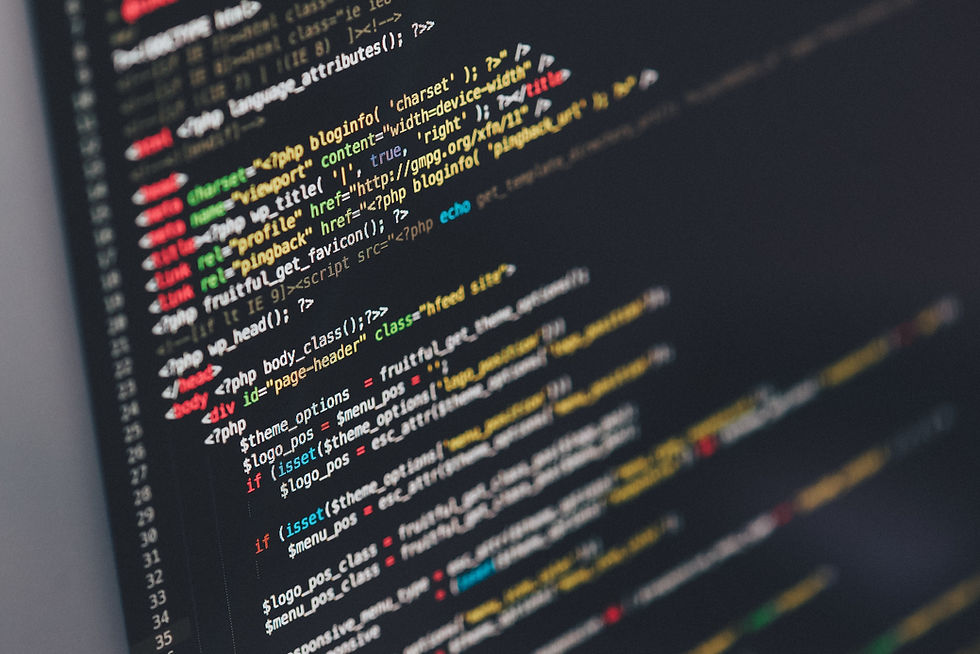The Essential Role of Python Programming in Shaping the Future of AI for IT Engineering Students
- Admire Tech Vision

- May 13, 2025
- 4 min read
Updated: May 19, 2025
In our fast-paced technological landscape, artificial intelligence (AI) stands out as a transformative force shaping the future. For IT engineering students, grasping the fundamentals of AI and its real-world applications is critical. Python programming serves as one of the most powerful tools for exploring the world of AI. This article explores why Python is a must-know for IT engineering students eager to engage in AI, emphasizing its simplicity, adaptability, and robust library ecosystem.

Understanding Python's Popularity in AI
Python has become the go-to programming language for countless AI projects due to its user-friendly syntax. Its readable code allows beginners to pick up programming concepts quickly without getting lost in complex syntax.
For IT engineering students, this straightforward design means they can concentrate on learning core AI principles rather than struggling with intricate coding details. Research from Stack Overflow indicates that Python is the most loved programming language among developers, with approximately 70% expressing a desire to keep using it.
Python's immense community support is another significant advantage. Students can find a wealth of tutorials, online resources, and forums dedicated to AI. Whether troubleshooting coding errors or looking for project ideas, this vibrant ecosystem enhances their learning experience.
Versatility of Python in AI Applications
Python's versatility shines through when it comes to its applications in the AI field. It can handle a wide range of tasks, from predictive analytics to natural language processing. This flexibility allows students to explore various AI concepts while using a single programming language.
For example, in the domain of machine learning, students can create models that learn from real-world data. Libraries like Scikit-learn and TensorFlow empower them to build everything from simple algorithms that identify trends to sophisticated neural networks that drive automated decision-making. According to Google, TensorFlow has become one of the most widely-used open-source machine learning libraries globally, showcasing its importance in the AI landscape.
In addition, Python excels in data manipulation and analysis through libraries such as Pandas and NumPy. These resources enable students to deal with large datasets efficiently—an essential skill for training AI models. In fact, a survey revealed that 62% of data scientists use Python primarily for data analysis, highlighting its critical role in the field.

Rich Ecosystem of Libraries and Frameworks
A key factor in Python's success in AI is its rich set of libraries and frameworks, which greatly speed up students' learning and project execution. Notable libraries include:
Keras: Simplifies building deep learning models, streamlining focus on model architecture rather than coding intricate algorithms.
PyTorch: Offers flexibility and speed in deep learning applications, helping students execute complex AI experiments more efficiently.
Matplotlib: Vital for data visualization, aiding students in interpreting data and uncovering trends that may not be immediately apparent.
With these powerful tools at their disposal, IT engineering students have everything they need to innovate and experiment in the realm of AI, gaining skills that are increasingly sought after in the job market.
Community Support and Learning Resources
The learning curve for AI can be steep, but Python’s enthusiastic community alleviates this challenge. IT engineering students can benefit greatly by engaging with online platforms such as Stack Overflow, GitHub, and dedicated Python forums.
Through these networks, students can display their projects, ask for expert advice, and work on collaborative AI initiatives. This experience not only sharpens their programming skills but also helps them build connections with others who share their interests.
Numerous online courses focus specifically on Python for AI on platforms like Coursera, edX, and Udacity. These specialized courses help students gain hands-on experience, making them more competitive for job opportunities. In fact, according to a report by the World Economic Forum, AI job postings have increased by 74% since 2019, showcasing the growing demand for expertise in this field.
Employability and Career Opportunities
As the AI sector expands, the demand for professionals skilled in Python continues to soar. Various industries seek out individuals capable of providing AI-driven solutions to business challenges. By mastering Python, IT engineering students can unlock a wide array of career opportunities.
Jobs like data scientist, machine learning engineer, and AI researcher are just a few examples of careers that require strong Python skills. According to the U.S. Bureau of Labor Statistics, roles in data science are projected to grow by 31% from 2019 to 2029, reflecting a high demand for adept professionals.
By incorporating Python into their skillset, students position themselves to thrive in the ever-changing tech landscape, becoming the experts companies rely on to drive AI projects forward.
Practical Applications of Python in AI Projects
Gaining hands-on experience is vital for understanding AI deeply. Python's straightforward syntax allows IT engineering students to jump right into project development, focusing on creating algorithms and models with minimal setup time.
For example, a student might develop a basic recommendation system using Python’s machine learning libraries. Working on such practical projects helps students grasp how AI applies to real-world situations.
Additionally, participating in hackathons and coding boot camps focused on Python and AI fosters creativity and promotes critical problem-solving skills. These events also create excellent networking opportunities for aspiring tech professionals.
Looking Ahead: The Future of Python in AI
The outlook for Python's role in AI remains promising. As AI technology evolves, Python is expected to adapt and expand, regularly introducing new tools and frameworks. Staying current with trends in the Python community helps IT engineering students maintain relevance in their careers.
Continuous learning and keeping up with evolving practices will ensure students are well-prepared to embrace future challenges and innovations in the tech world.
Final Thoughts
In the AI landscape, learning Python is not just useful; it is essential. Its user-friendly nature, versatility, and strong community support make it an invaluable resource for IT engineering students. By mastering Python, students can significantly enhance their skill set, paving the way for exciting careers in a dynamic and rapidly evolving field.
As AI technology continues to shape industries worldwide, students equipped with Python programming skills will lead the charge in implementing intelligent systems. Embracing Python today may open doors to unprecedented career opportunities tomorrow.







Comments